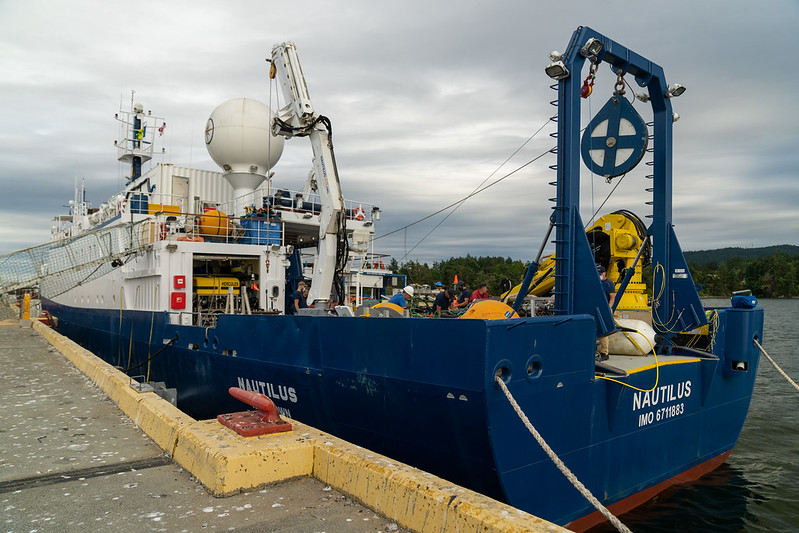$46.5 million to go towards open-access oceanographic research and climate change mitigation

Photo by Ocean Networks Canada (ONC) via flickr.
On Feb. 6, 2023, Minister of Fisheries, Oceans and the Canadian Coast Guard Joyce Murray announced that $46.5 million in funding from Canada’s Ocean Protection Plan will be distributed to Ocean Networks Canada (ONC) over five years.
ONC is an ocean science initiative owned and hosted by UVic. By operating observatories such as NEPTUNE and VENUS, ONC collects and archives oceanic data in the deep sea and along Canada’s Arctic, Atlantic, and Pacific coasts, building up our knowledge about these waters through the initiative’s development of in-depth data and its contribution to scientific research.
According to a news release, “This research helps to provide real-time, open data to better understand our changing oceans,” which serves to inform governmental decision-making, benefit Indigenous communities, and further public interest.
Dr. Kate Moran joined UVic in 2011 as a professor in the Faculty of Earth and Ocean Sciences and has been leading ONC as president and CEO since July 2012. In an interview with the Martlet, Moran reflected on how ONC has almost doubled in size since her appointment as president, with the organization’s systems expanding to include small observatories in coastal communities.
ONC is funded primarily through the Canada Foundation for Innovation, but the foundation’s funds do not cover the full costs of ONC’s operations. The funding recently granted by the federal government will help ONC fill that gap.
“That funding provides 60 per cent of our operating costs, and … we need to actually get additional funding to operate everything [at] 100 per cent. So this $46.5 million made us whole in terms of operating our entire research infrastructure,” said Moran.
ONC will also use the additional funds to uphold its commitment to Fisheries and Oceans Canada to support the Oceans Protection Plan, the Government of Canada’s action plan that has dedicated $3.5 billion to the protection of the nation’s seas and coasts. ONC’s commitment will include responding to emergencies like oil spills and rescue missions, and providing data on conservation factors and climate change indicators such as surface currents, ocean noise, and sea level rise. Moran emphasized the data’s importance in helping us make well-informed decisions about what should be done to mitigate and adapt to climate change.
“We also are interested in expanding, essentially, technology transfer to coastal Indigenous communities across the country so that they can have the advantage of capturing their own data in their own ocean front yards [and] so that they have the capacity to be at the same table as, for example, the federal government in discussions, because data are powerful in that light,” said Moran.
There are multiple ways in which students can get involved with ONC and follow along with the initiative’s work. ONC currently helps teach course EOS 350 in the School of Earth and Ocean Sciences at UVic. The course covers introductory oceanography, socio-ecologic concerns, and many other aspects about the ocean. ONC also partners with UVic’s Gustavson School of Business to offer students honours-program projects meant to pose solutions to the business side of sustainability and climate-related problems. Additionally, ONC has a team that engages with schools, organizing programs and materials for youth who wish to learn about the ocean.
ONC’s next expeditions are in March and then late June. According to Moran, ONC team members operate and maintain their systems using robots fitted with high-definition cameras that allow the team to control them from ships. The cameras are streamed live, so anyone who is interested can view the offshore expeditions and see how the ONC team actually does its work.
“At UVic, we strive to support and empower people to exist more sustainably and improve the well-being of communities and our planet,” said UVic President and Vice-Chancellor Kevin Hall in the federal government news release. “Ocean Networks Canada is a key catalyst in this work by helping society understand the interconnectivity of life, the oceans and planet.”







